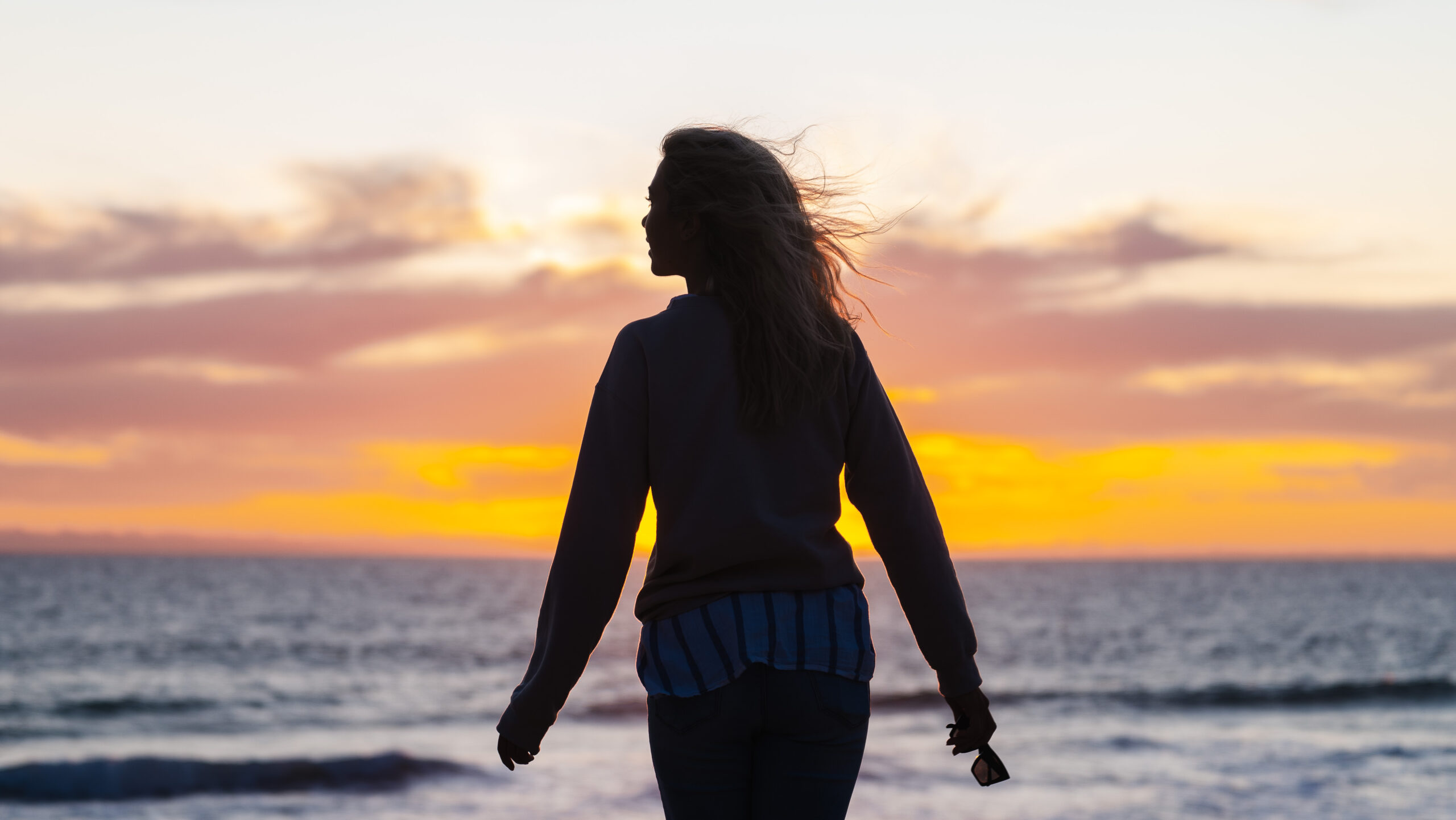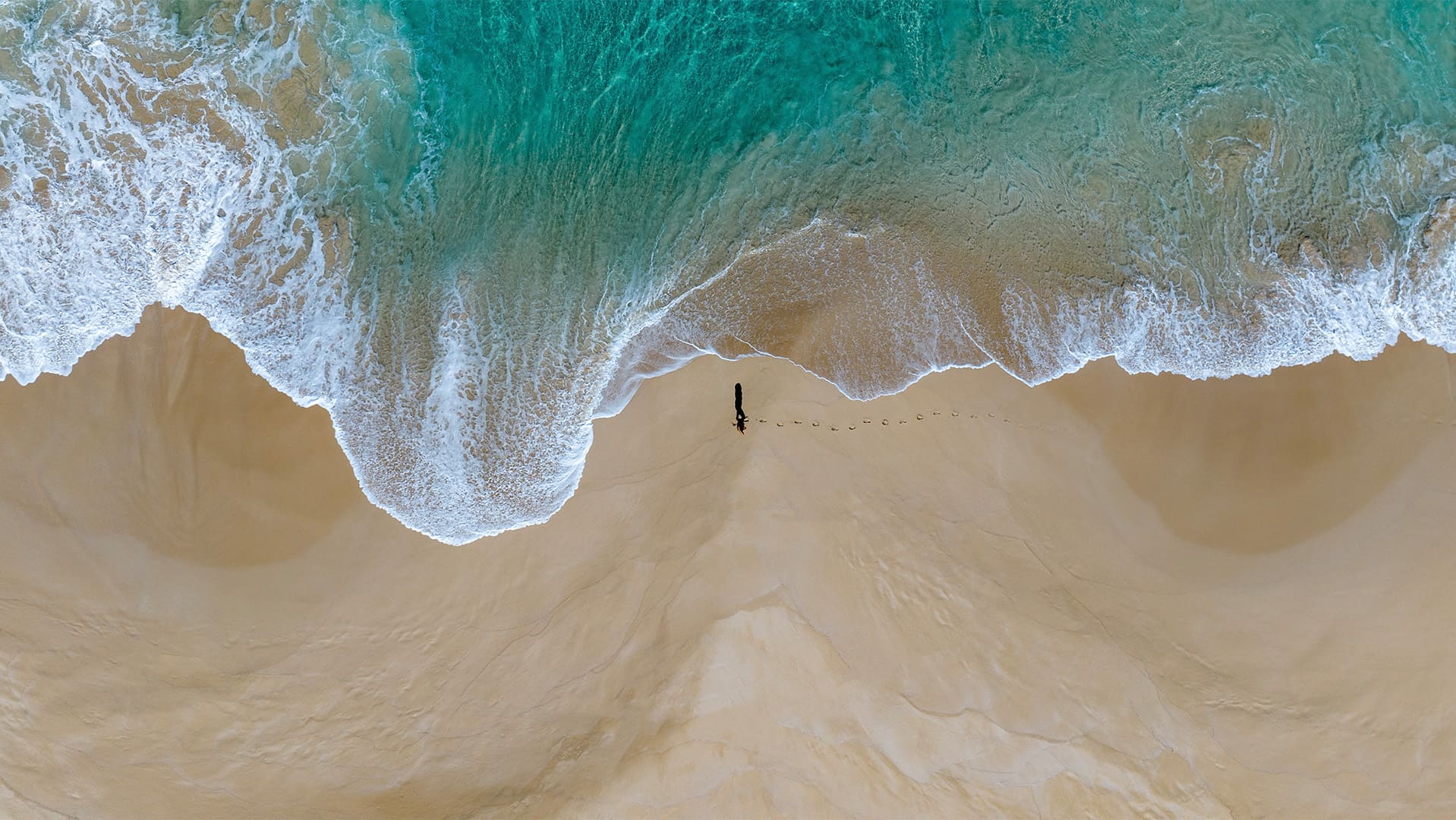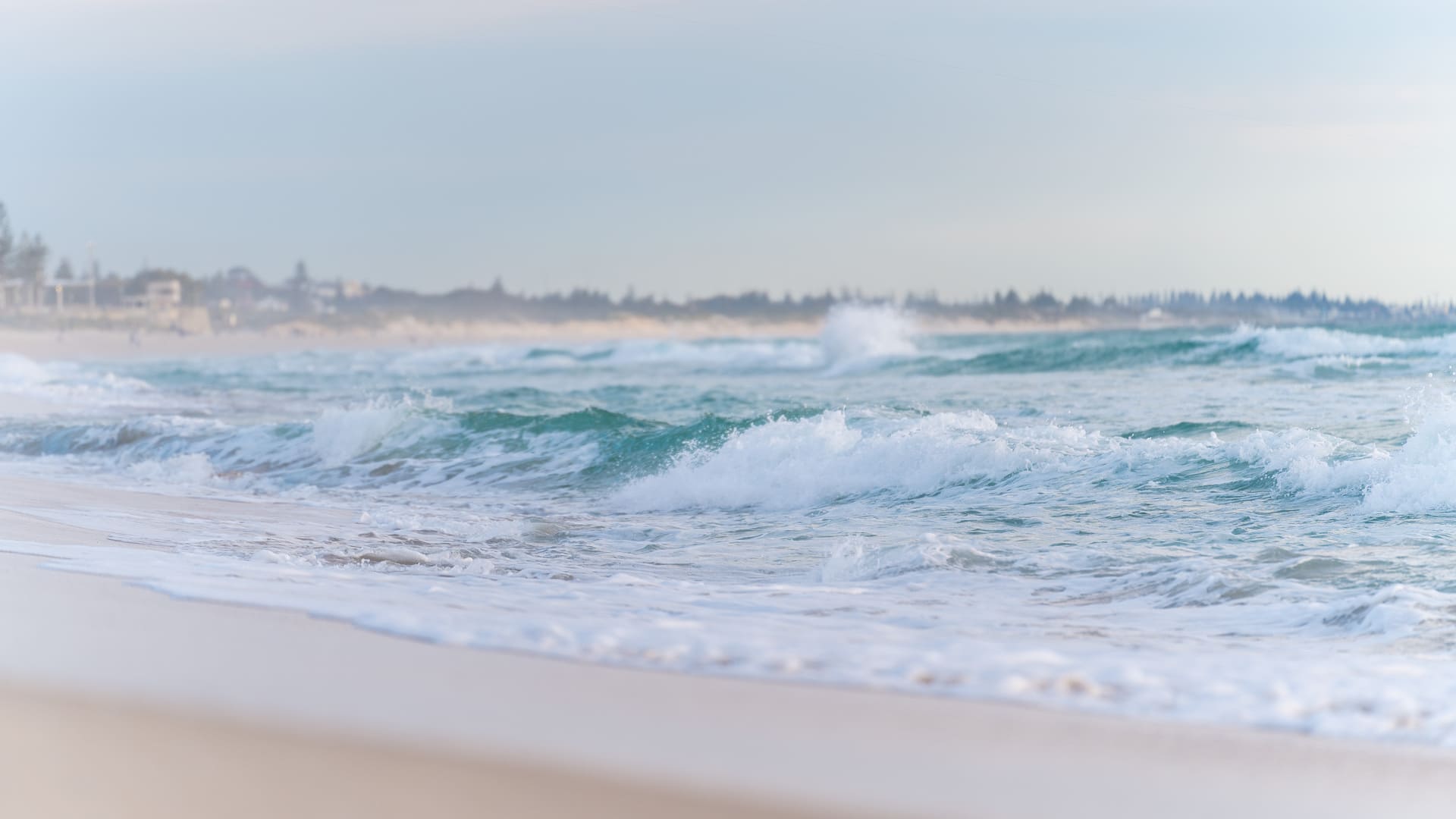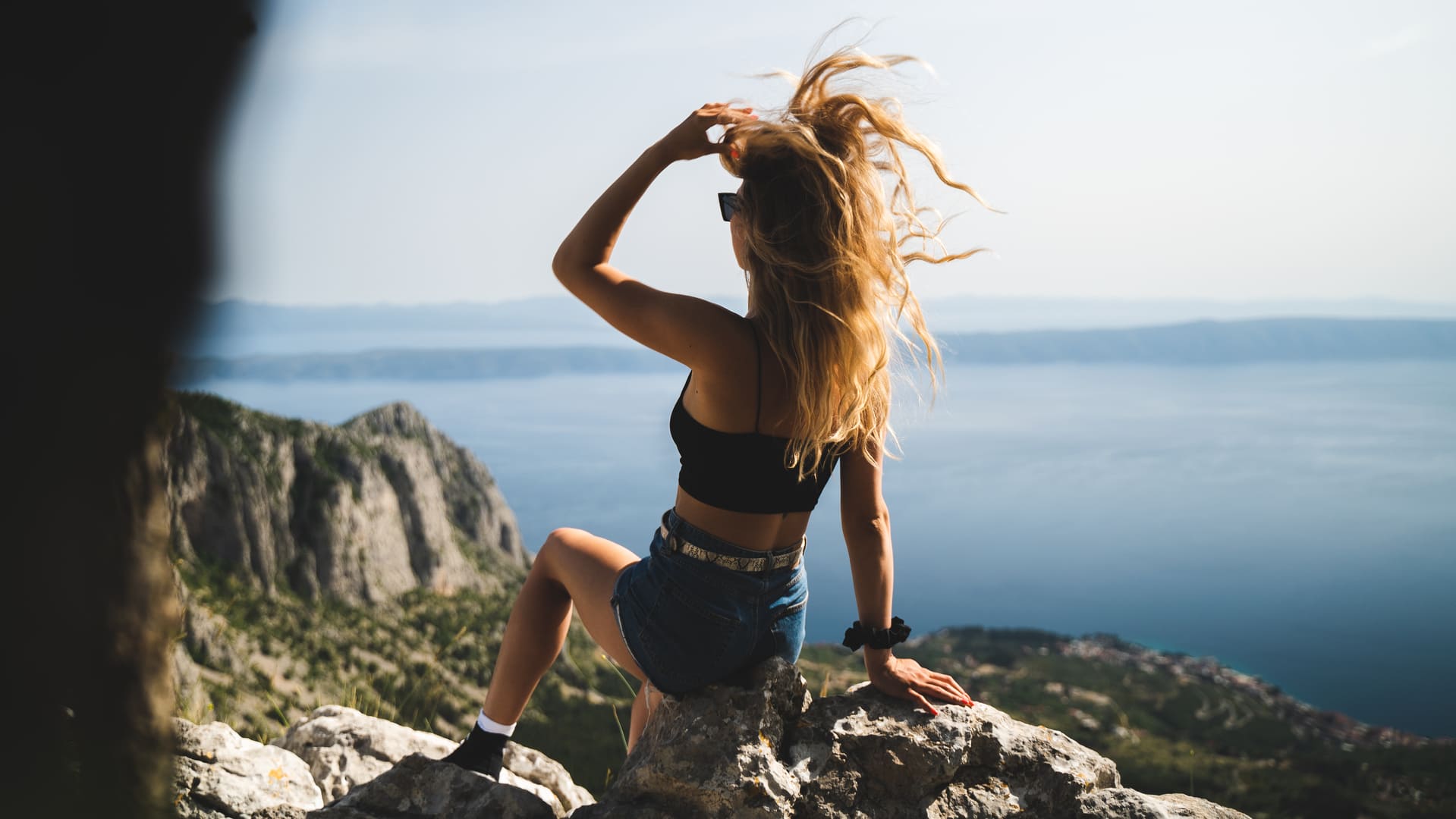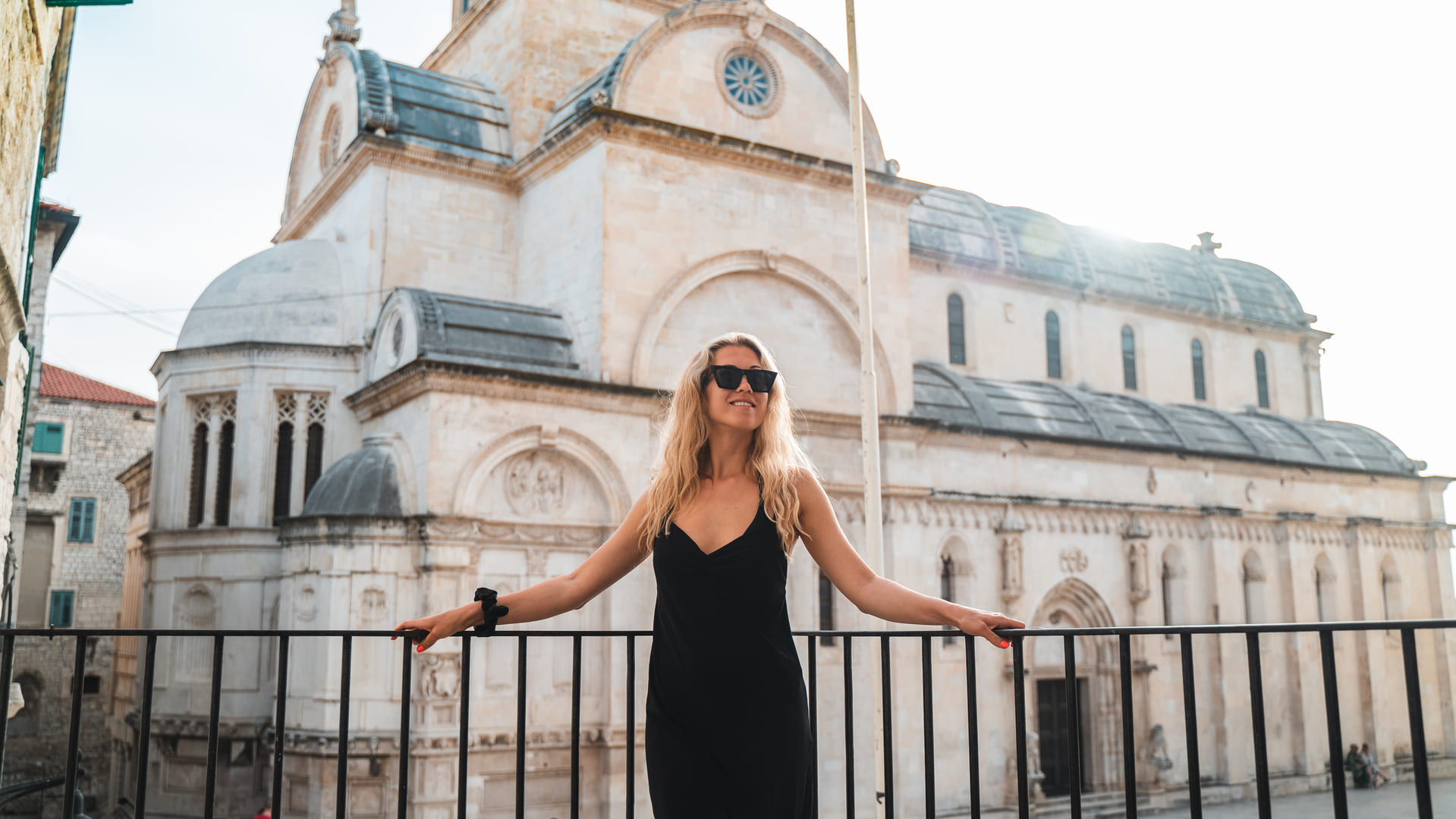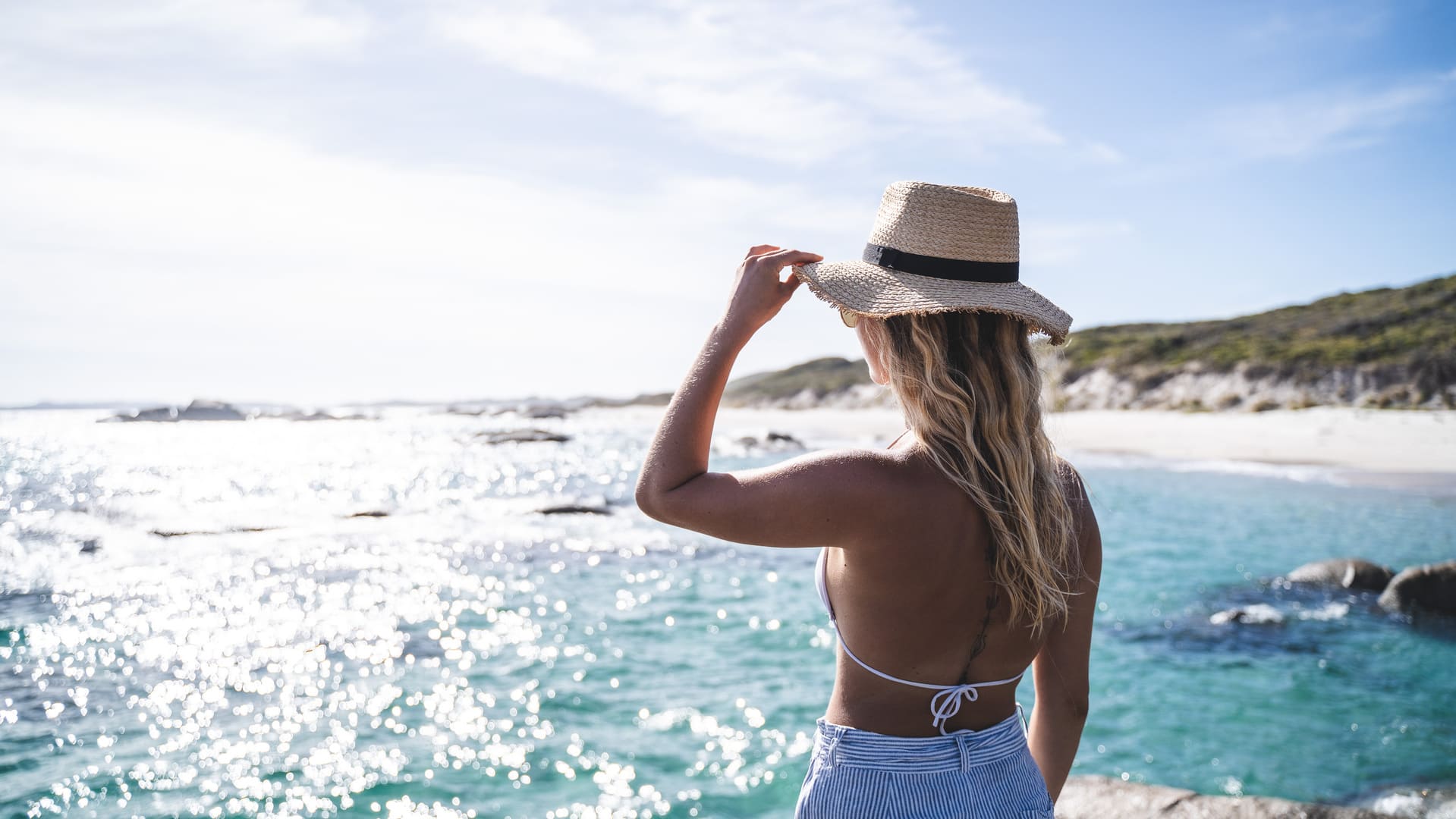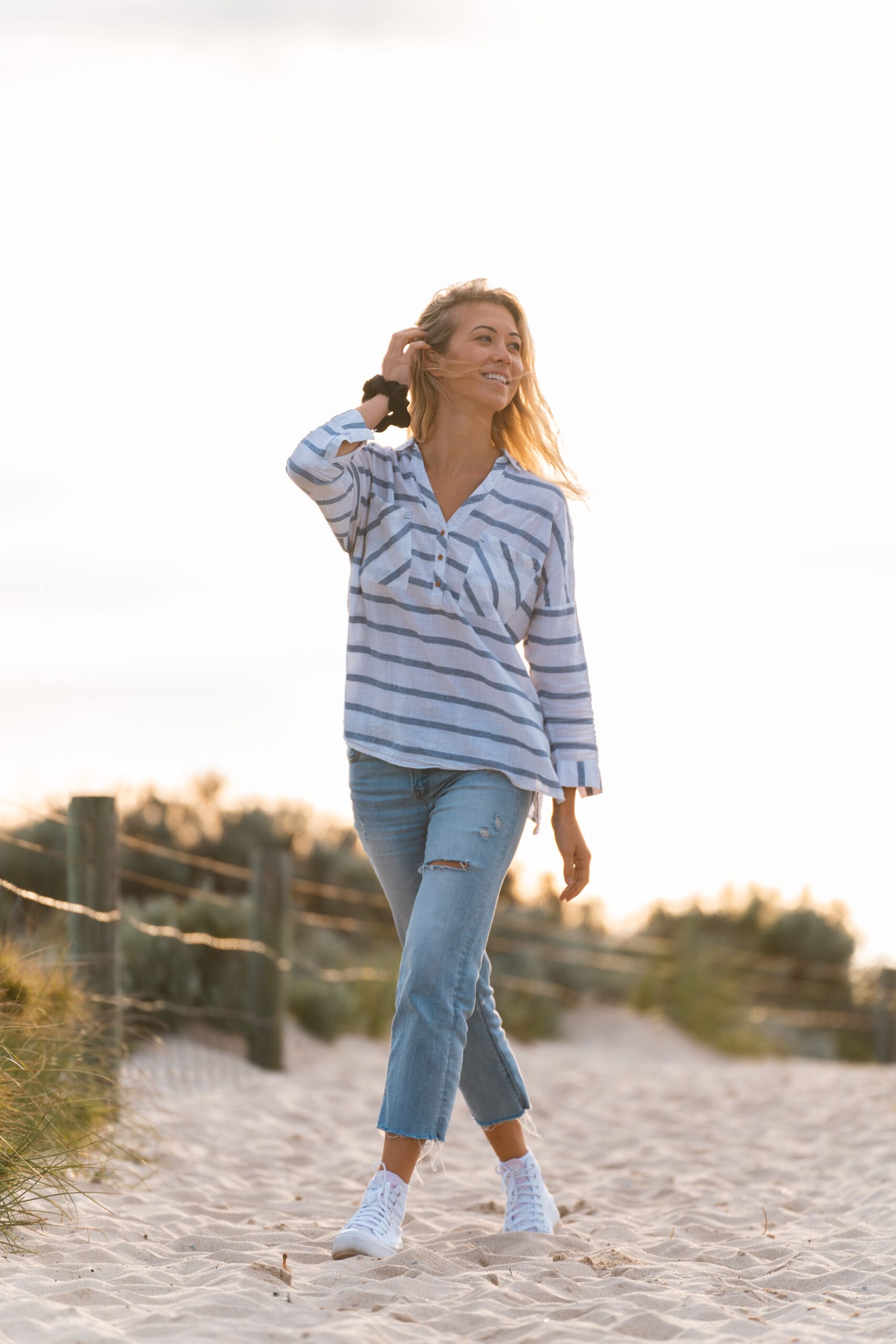Understanding Anxiety: What It Really Is
Overcoming anxiety without medication is possible, and it starts with understanding what anxiety really is. Anxiety isn’t just about feeling nervous or stressed. It’s a pattern of fear-based thoughts that keep repeating in our minds. It’s the constant “what if?” that loops through our heads: What if something bad happens? What if I fail? What if I embarrass myself?
Our brains create a cycle that keeps us stuck in this fear, even when no real danger exists. And here’s what clicked for me…
If our thoughts create anxiety, then that means we have the power to change them. By learning to control our thoughts, we can learn to control our anxiety. That realization led me to meditation, which became a daily practice.
And that’s when everything started to change for the better.

My Personal Experience: How I Went From Anxiety to Healing
I grew up in a happy family and had a very social life. I had no idea that overcoming anxiety would become something I’d struggle with.
In 2018, while traveling in New Zealand with friends, I experienced my first panic attack. It felt like my body had completely turned on me – my chest tightened, I couldn’t breathe, and I started sweating. I rushed to get allergy medication, but the problem wasn’t allergies. It was anxiety.
Three weeks later, while flying to Vietnam, I experienced another panic attack. After visiting the hospital, I was diagnosed with panic attacks. The realization hit me hard, but it also helped me understand what was happening. I thought it was a one-time event, but I was wrong. Returning to Amsterdam and working in a high-stress nightlife environment only made my anxiety worse. Alcohol, caffeine, lack of sleep – all these triggers kept fueling my anxiety.
Eventually, I reached a point where I couldn’t ignore my anxiety anymore. I moved back home to slow down and take my healing seriously. My doctor recommended a holistic approach, and that’s when I decided to dive deeper into self-help books and start meditating daily.
At first, I had no clue how to meditate. I wondered if I was doing it right and didn’t see immediate results. But the more I stuck with it, the clearer my mind became. Meditation started to shift my brain, and my stress reaction became less intense. It wasn’t a quick fix, but it was a long-term solution.
The Science Behind Anxiety & Meditation
Overcoming anxiety without medication requires understanding the biological response behind it. Anxiety is a biological response triggered by the amygdala, the part of the brain responsible for detecting threats. It activates the fight-or-flight response, flooding your body with stress hormones. But here’s the catch – your brain can’t distinguish between a real threat (like a dangerous animal) and a perceived one (like a stressful situation).
Meditation works by training the prefrontal cortex, the part of the brain that handles logic and emotional regulation. Studies show that mindfulness meditation actually shrinks the amygdala and strengthens the prefrontal cortex. This makes it easier to stop anxiety before it spirals.
How Meditation Helps Manage Anxiety
Meditation doesn’t stop your thoughts – that’s impossible. What it does is teach you to observe them without reacting. When you meditate, you train your brain to slow down and respond with clarity rather than fear. The more you practice, the stronger these brain changes become, making you more resilient to stress.
Simple Meditation Techniques for Beginners
I hear it way too often— “I don’t know how to meditate.” “I can’t have 0 thoughts.” And then people just give up.
Meditation is NOT about having 0 thoughts. It’s about learning how to sit with your thoughts and not let them control you.
Sure, there are types of meditation where the goal is to quiet the mind completely, but that’s just one style. There are so many ways to meditate, and I promise you—there’s one that will work for you.
But let’s not overcomplicate it.
The easiest way to start meditating is with guided meditations. You don’t have to sit in silence trying to figure it out on your own. Just press play, put your headphones in, close your eyes, and let someone guide you through the process. There are millions of free guided meditations on YouTube and great apps like Headspace and Calm.
I started with Boho Beautiful meditations, and I’ll link one of my favorites here.
In guided meditations, you’ll often be given a mantra to repeat. And trust me, your mind will wander. You will start thinking about what to have for dinner, or that embarrassing thing you said five years ago. That’s normal. Even people who have meditated for years still have wandering thoughts.
The key is to notice when your mind drifts away, and gently bring it back. That’s how you build mental resilience.
Here’s a simple technique you can try:
The “Thoughts as Clouds” Visualization:
Whenever a thought pops up—let’s say, “What should I wear tomorrow?”, instead of following that thought down a rabbit hole, just notice it. Imagine turning it into a cloud and watching it drift away. Then, when another thought comes? Do the same thing. Acknowledge it. Let it pass.
This practice hugely helped me. When I feel anxiety creeping in, instead of letting it take over, I just notice it and remind myself, “This is just my brain sending a false alarm.” Then, I turn the anxiety into a cloud and let it drift away.
For me, anxiety always loses its grip when I acknowledge it rather than trying to suppress it. If I try to push it away or ignore it, it only comes back stronger. Instead, I catch it, acknowledge it, and let it go.
Breathwork – The Best Tool to Calm Anxiety Instantly:
Another tip that’s helped me so much is focusing on my breath. A great technique, especially when your mind is all over the place, is box breathing:
- Inhale for 4 seconds
- Hold for 4 seconds
- Exhale for 4 seconds
- Hold for 4 seconds
(Repeat at least 10 times, or until you feel calmer.)
Breathwork works because your brain can’t think of two things at the same time. So when you’re busy counting your breaths, your anxious thoughts take a backseat.
And if holding your breath feels too intense (which has happened to me before), just inhale for 4 seconds, exhale for 4 seconds, and keep counting. The key is rhythmic breathing, your body naturally starts to calm down when your breath is steady.
When and How to Meditate: Tips for Beginners
From my experience, the best time to meditate is first thing in the morning.
Why? Because your mind is the most receptive in the morning. After sleep, your brain is clear, and you usually don’t have a million thoughts racing yet. Meditation is way easier when your mind isn’t already overloaded.
Here’s what I recommend for beginners:
♡ Don’t check your phone first thing in the morning.
The second you open social media, you’re letting the outside world in before even checking in with yourself. Try to avoid your phone (especially social media )for at least an hour after waking up.
♡ Find a quiet place.
It doesn’t have to be a fancy setup, just somewhere you won’t be disturbed.
♡ Set a time & commit to it.
Even if it’s just 5 minutes a day, consistency is more important than duration.
♡ Start with guided meditations.
It makes the process way easier than sitting in silence, wondering if you’re doing it right.
♡ Try to pair it with another habit.
For example, right after you drink your morning water or right before you make your coffee. That way, it becomes part of your routine.
At the end of the day, meditation isn’t about doing it perfectly. It’s just about showing up for yourself.
And the more you do, the more you’ll start to notice: You’re not as reactive. You’re calmer. You sleep better. You feel more you. And that’s when you realize this isn’t just something you “should” do. It’s something that actually makes life better.
Final Thoughts
Healing takes time. If you’re struggling with anxiety, I promise you, you’re not alone and you can heal. Meditation isn’t a quick fix, but if you commit to it, even on tough days, it will change your life. Start small, be patient with yourself, and remember that you deserve to feel calm, in control, and like yourself again.
If you need support or just want to share your experience, feel free to reach out.
You are stronger than your anxiety.



